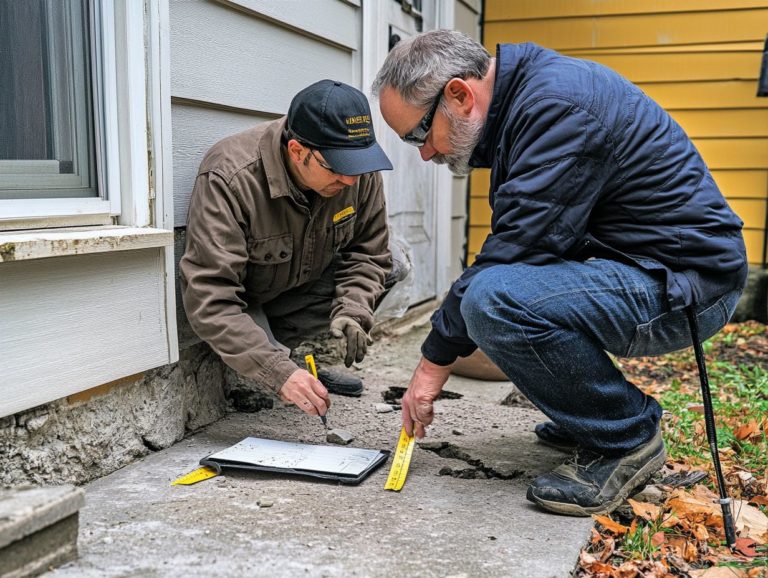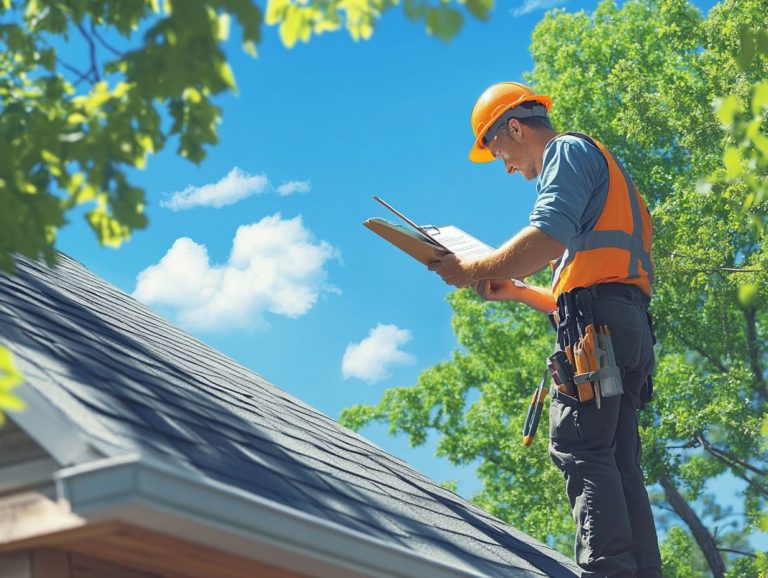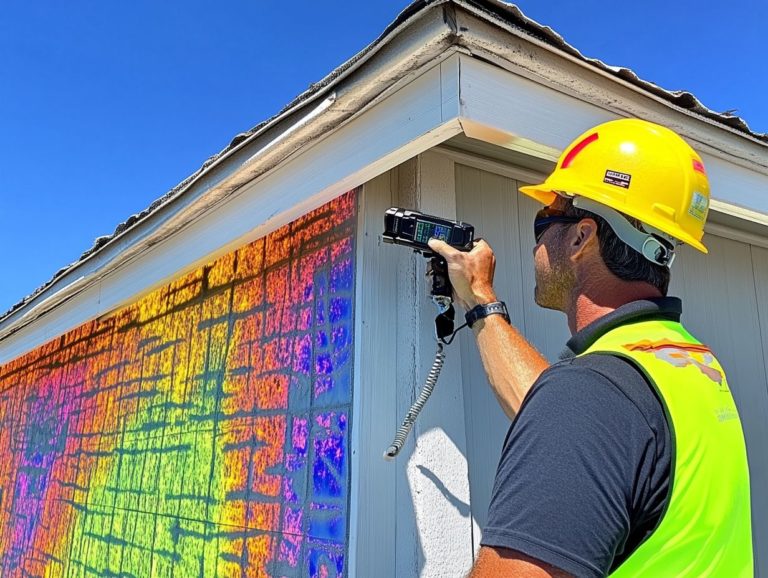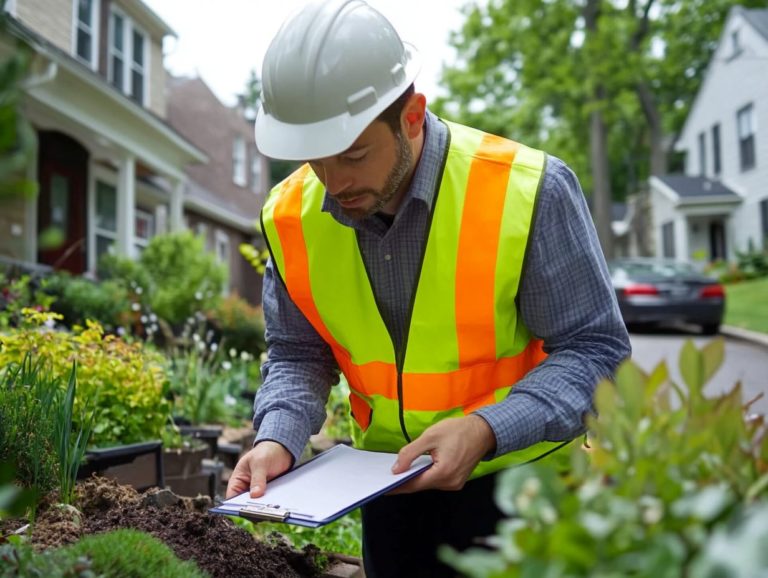How to Prepare for a Home Inspection: Key Steps
When it comes to buying or selling a home, grasping the significance of home inspections is absolutely essential for you.
These assessments not only highlight potential issues but also provide peace of mind for everyone involved in the transaction. This guide will delve into the benefits and purpose of home inspections, outline the critical preparation steps, and offer comprehensive checklists for both the exterior and interior of the home.
Additionally, it will address how to handle any red flags that may surface during the inspection and conclude with actionable steps for repairs and re-inspections. Whether you’re a first-time buyer or in the process of selling, this thorough guide will equip you with everything you need to navigate the inspection process with confidence.
Contents
- Key Takeaways:
- Importance of Home Inspections
- Preparing for a Home Inspection
- Exterior Inspection Checklist
- Interior Inspection Checklist
- Addressing Potential Issues
- Final Steps and Follow-up
- Preguntas Frecuentes
- Qu es una inspecci n de vivienda y por qu es importante?
- Cu ndo debo comenzar a prepararme para una inspecci n de vivienda?
- Cu les son los pasos clave para prepararse para una inspecci n de vivienda?
- Necesito estar presente durante la inspecci n de vivienda?
- Puedo prepararme para una inspecci n de vivienda por mi cuenta o deber a contratar a un profesional?
- Qu pasa si se encuentran problemas durante la inspecci n de vivienda?
Key Takeaways:
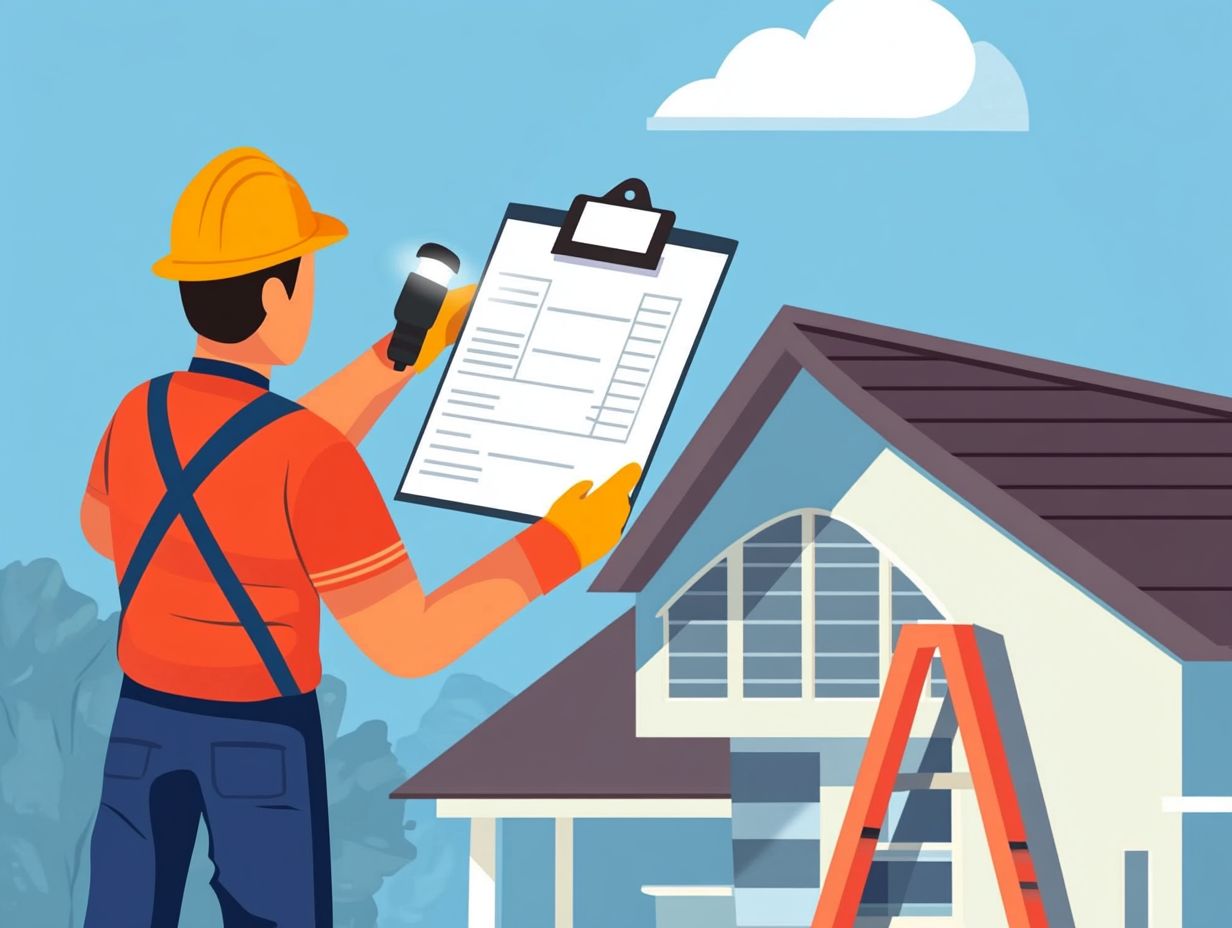
Be aware of the benefits and purpose of a home inspection and the importance of preparing for it.
Create a timeline and follow key steps to ensure a smooth and successful inspection process.
Use exterior and interior checklists to guide you in identifying potential issues and addressing them promptly.
Importance of Home Inspections
Home inspections are critical in the real estate process, acting as a vital safeguard for both buyers and sellers.
When you hire a qualified home inspector for a thorough examination, you gain crucial insights into the property’s condition, allowing potential buyers to be fully informed about any underlying issues that could influence their decision.
For sellers, a comprehensive inspection report serves to justify their asking price and accentuate safety features, while also showcasing their dedication to property maintenance. This approach builds trust and openness throughout the transaction.
Ultimately, a home inspection lays the groundwork for successful negotiations and contributes to a more seamless real estate experience.
Benefits and Purpose
The benefits of home inspections reach far beyond mere compliance; they offer you essential peace of mind by revealing hidden issues before you make a purchase.
This proactive approach not only uncovers necessary repairs that might otherwise go unnoticed, but it also ensures that critical safety features like electrical systems and plumbing are up to current standards.
Armed with a comprehensive inspection report, you gain insights that can significantly influence your investment decisions. Being aware of potential hazards or costly repairs allows you to negotiate better terms, ensuring that you make a sound financial choice.
Ultimately, engaging in home inspections cultivates a sense of security, gives you the power to move forward with confidence and a clear understanding of the property’s condition.
Preparing for a Home Inspection
Preparing for a home inspection is a crucial step that can greatly impact the success of your property sale. Knowing how to prepare for a successful home inspection can make all the difference.
It all starts with a pre-inspection checklist to ensure you’re fully ready. Aim to clean and declutter your home, creating a welcoming atmosphere that allows the inspector to conduct a thorough examination. Following these tips for a successful home inspection day can further enhance the process.
Check that all appliances work properly and tackle any minor repairs in advance; this can facilitate a smoother inspection process. By following the essential checklist for home inspections, you can establish a timeline for these preparations, enhancing your home’s appearance and functionality now, ultimately contributing to a more favorable inspection report.
Timeline and Key Steps
Creating a timeline for your home inspection preparations is crucial to ensure that every necessary step is completed on time. This organized plan helps you stay on track and understand the home inspection process for sellers!
Start by conducting an initial walkthrough of your home to identify any visible issues, such as leaks or damaged fixtures, that the inspector is likely to note. For a thorough understanding, refer to understanding the home inspection process. After this, prioritize these repairs based on their urgency and potential impact on the overall inspection outcome.
By setting a specific date for the inspection, you can effectively schedule repairs, cleaning, and any necessary preparations. Additionally, understanding the process of home inspections will significantly enhance your chances of appealing to prospective buyers while ensuring a smooth inspection process.
Prepare today for a worry-free inspection tomorrow!
Exterior Inspection Checklist
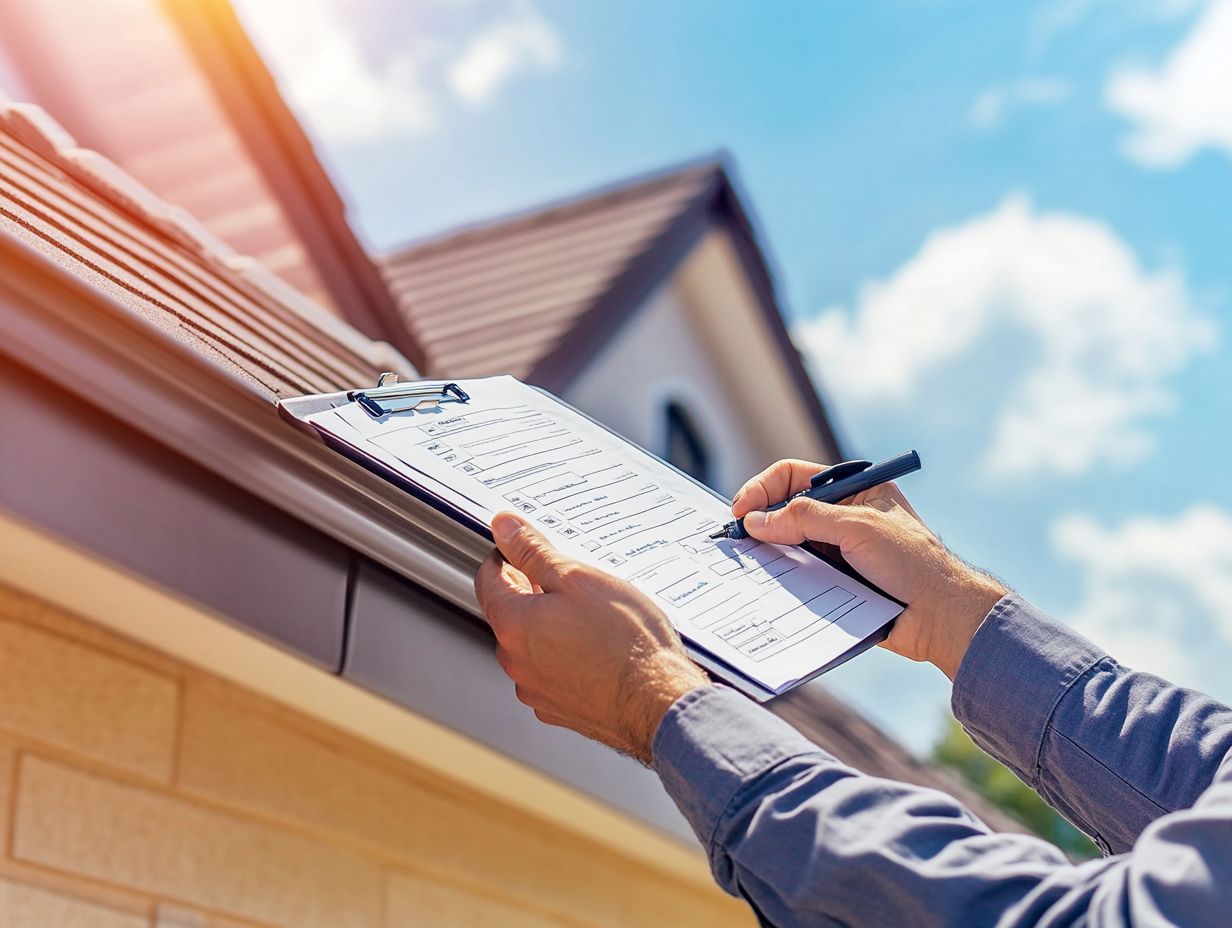
The exterior inspection checklist is crucial in the home inspection process. It emphasizes key features such as the roof, gutters, and outdoor maintenance to keep the property in peak condition.
As you conduct the inspection, evaluate critical components like drainage and the foundation’s structural integrity. Pinpoint any issues that could compromise the home’s longevity and safety.
A meticulous exterior assessment prepares the home for prospective buyers. It also gives sellers valuable insights into necessary maintenance and repairs to elevate the property’s value.
What to Look for Outside the Home
When conducting a home inspection, know what to look for outside the home. These elements greatly influence the property’s overall health and safety.
Pay attention to the roof’s condition, as it serves as your first line of defense against the elements. Check for signs of wear, missing shingles, or any damage that could lead to leaks.
Don’t overlook the gutters they’re just as important. Clogged or broken gutters can lead to water damage that seeps into the foundation.
Evaluate outdoor electrical systems, including the condition of exterior outlets and lighting fixtures. Regular outdoor maintenance protects your property and enhances its value.
Stay vigilant about these critical aspects to protect your investment.
Interior Inspection Checklist
An interior inspection checklist is vital for evaluating a home’s many components. It ensures that systems such as plumbing and heating, ventilation, and air conditioning (HVAC) operate smoothly, and that appliances are in optimal condition.
This assessment looks at structural concerns. Water damage and foundation issues can threaten the home’s integrity.
By diligently following the interior checklist, you can proactively address any problems before the buyer s inspection. This strengthens your negotiating position and can elevate the selling price.
What to Look for Inside the Home
When inspecting the interior of a home, focus on key areas like plumbing, the HVAC system, and the functionality of various appliances.
-
Start with plumbing look for leaks, corrosion, and ensure proper drainage. Ignoring these issues can lead to costly repairs later.
-
Next, evaluate the HVAC system’s efficiency and maintenance history; this directly impacts indoor air quality and your overall comfort.
-
Review the condition of major appliances such as the refrigerator, oven, and washer. Spotting potential problems now can save you headaches down the road.
-
Finally, keep an eye out for structural issues like cracks in the walls or foundation. These can significantly affect the home s overall integrity and long-term value.
Addressing Potential Issues
As a seller, tackling potential issues found during a home inspection is crucial for your success! By quickly addressing red flags in the inspection report, you can make timely repairs and communicate proactively with prospective buyers. This builds a foundation of trust and transparency.
Tackling these concerns enhances your property s appeal and could boost your selling price while ensuring you meet essential safety standards.
How to Handle Red Flags
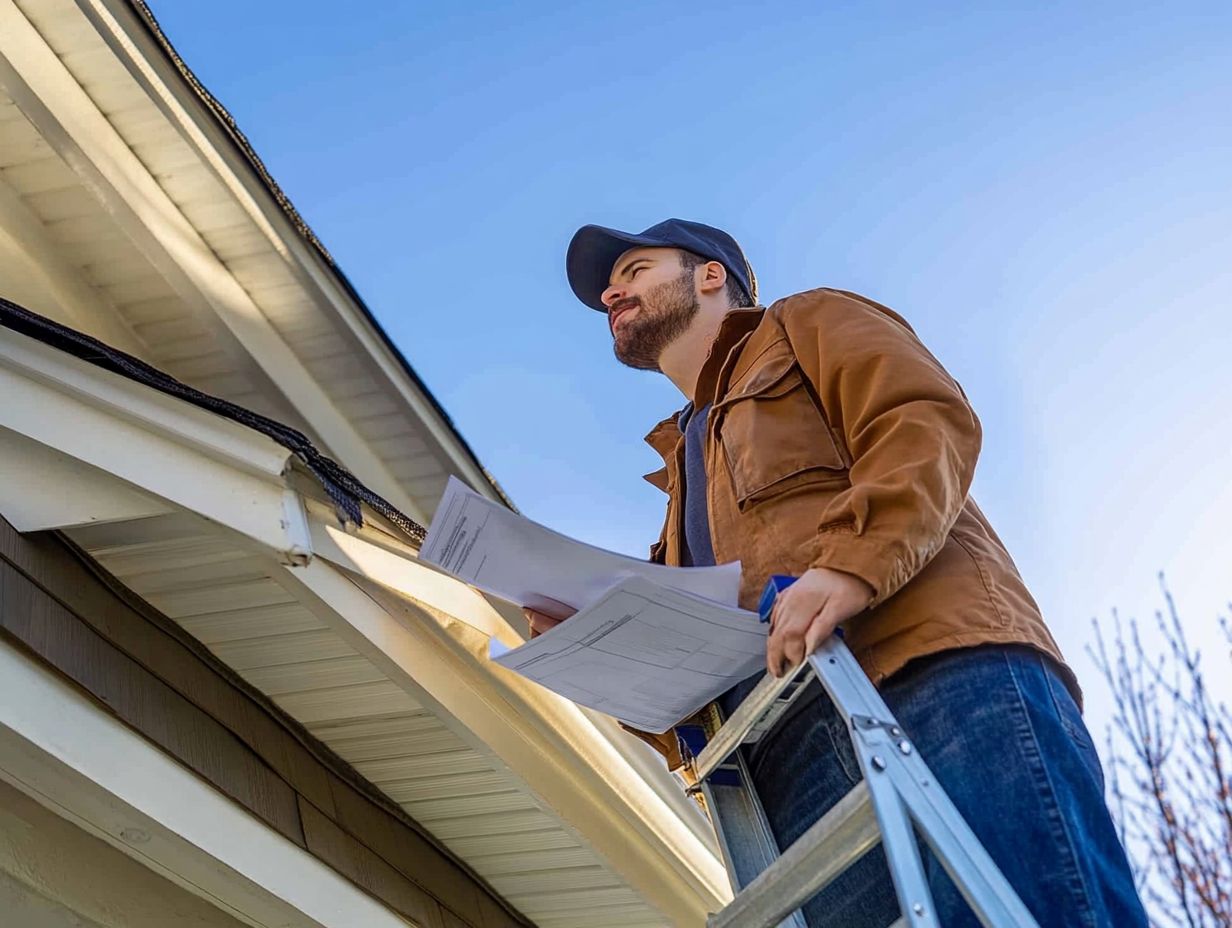
Handling the red flags that pop up during a home inspection is an important step in your selling journey. It directly impacts the inspection report and the negotiations that follow.
Addressing these issues helps preserve your property’s value and builds trust with potential buyers.
Prioritizing timely repairs is essential. Address these issues immediately to avoid complications later, especially major concerns like roof leaks or electrical issues.
Being transparent about what you ve fixed or what you plan to address significantly alleviates buyer concerns, showcasing your commitment to integrity.
Engaging professional services for repairs adds reassurance, demonstrating that your home has been meticulously maintained.
Fostering open dialogue throughout this process lays the groundwork for a smooth and successful transaction.
Final Steps and Follow-up
The final steps and follow-up after a home inspection are crucial for ensuring all necessary repairs are addressed. To navigate this process smoothly, it’s helpful to know what to expect during the home inspection process, which also prepares you effectively for any subsequent buyer’s inspection.
Taking these measures enhances your property’s appeal and strengthens your position in the real estate market.
Completing Repairs and Reinspections
Completing the repairs outlined in your home inspection report is crucial to keeping your property’s value high. It also ensures a seamless transaction process.
As you tackle these repairs, focus on the areas highlighted in the report, particularly the heating, ventilation, and air conditioning (HVAC) system, along with plumbing and electrical systems. Addressing these enhances the safety and comfort of your home and significantly shapes the prospective buyer’s impression.
Once the repairs are complete, consider conducting reinspections to confirm that all issues have been effectively resolved. This offers peace of mind for both you and the buyer.
An updated inspection report reflecting these improvements can greatly strengthen your negotiations, reassuring potential buyers that your property has been well-maintained and is ready for them to move in.
Preguntas Frecuentes
Qu es una inspecci n de vivienda y por qu es importante?
Una inspecci n de vivienda es una evaluaci n exhaustiva de la estructura, sistemas y condici n general de una propiedad. Es importante porque ayuda a identificar cualquier problema potencial o reparaciones necesarias, permiti ndote tomar decisiones informadas sobre la compra o venta de una vivienda.
Cu ndo debo comenzar a prepararme para una inspecci n de vivienda?
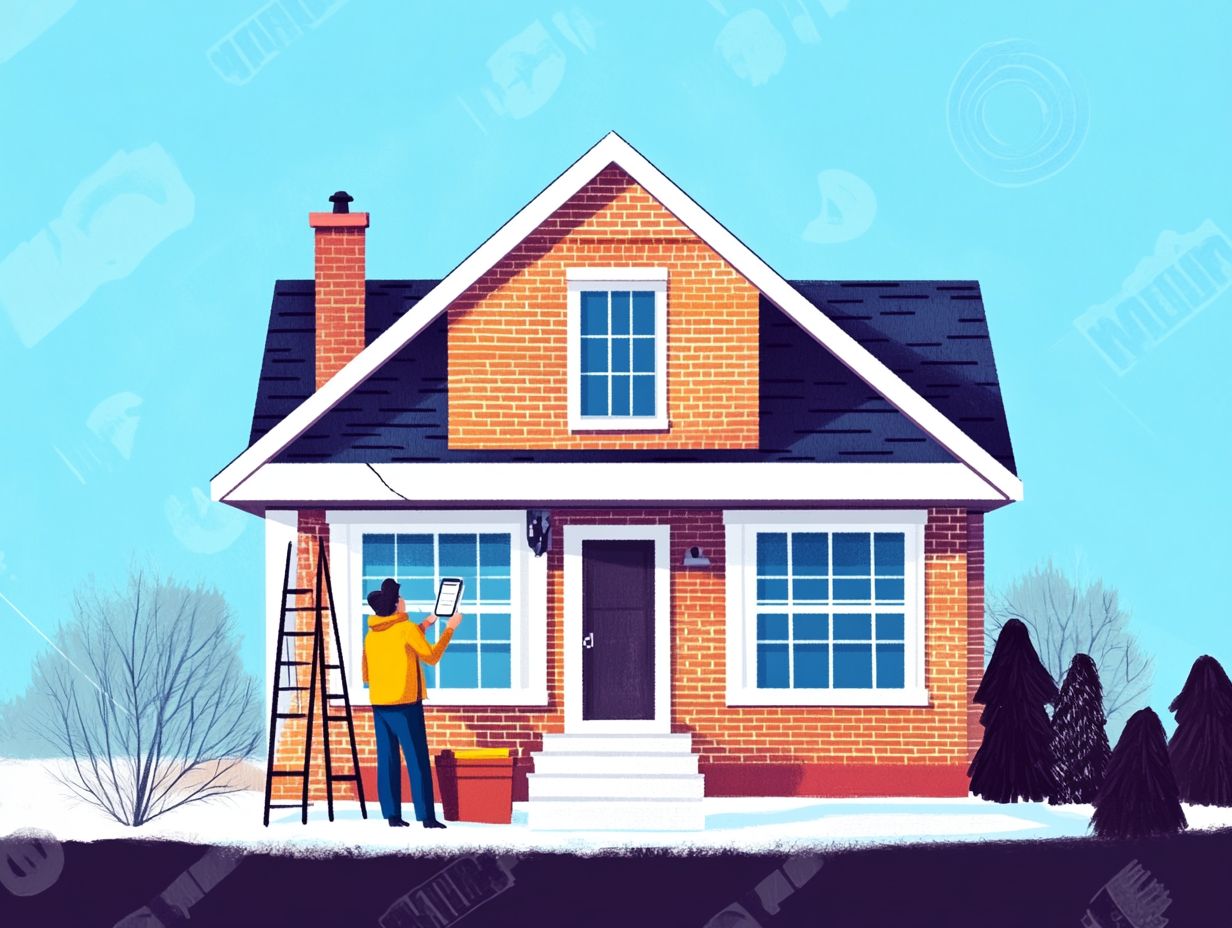
Idealmente, deber as comenzar a prepararte para una inspecci n de vivienda tan pronto como pongas tu casa en el mercado o antes de comenzar a buscar una nueva casa para comprar. Esto te dar suficiente tiempo para abordar cualquier problema potencial y asegurarte de que tu hogar est en ptimas condiciones.
Cu les son los pasos clave para prepararse para una inspecci n de vivienda?
Los pasos clave para prepararse para una inspección de vivienda incluyen deshacerse del desorden y organizar tu hogar, realizar reparaciones necesarias, limpiar y ordenar, reunir documentos importantes, y asegurarte de que todos los servicios estén encendidos y accesibles para el inspector. Para más detalles, consulta la guía sobre el proceso de inspección de vivienda.
Necesito estar presente durante la inspecci n de vivienda?
Si bien no es obligatorio, se recomienda que est s presente durante la inspecci n de vivienda. Esto te permitir hacer cualquier pregunta que puedas tener y abordar cualquier inquietud que surja durante la inspecci n.
Puedo prepararme para una inspecci n de vivienda por mi cuenta o deber a contratar a un profesional?
Se recomienda contratar a un profesional, como un agente inmobiliario, para ayudarte a prepararte para una inspecci n de vivienda. Ellos pueden ofrecer informaci n y experiencia valiosas, y tambi n pueden ayudarte a priorizar cualquier reparaci n o mejora necesaria.
Qu pasa si se encuentran problemas durante la inspecci n de vivienda?
Si se encuentran problemas durante la inspecci n de vivienda, puedes negociar con el comprador o vendedor para abordar estos problemas. Tambi n puedes optar por realizar las reparaciones necesarias t mismo o reducir el precio de venta para tomar en cuenta las reparaciones necesarias.

